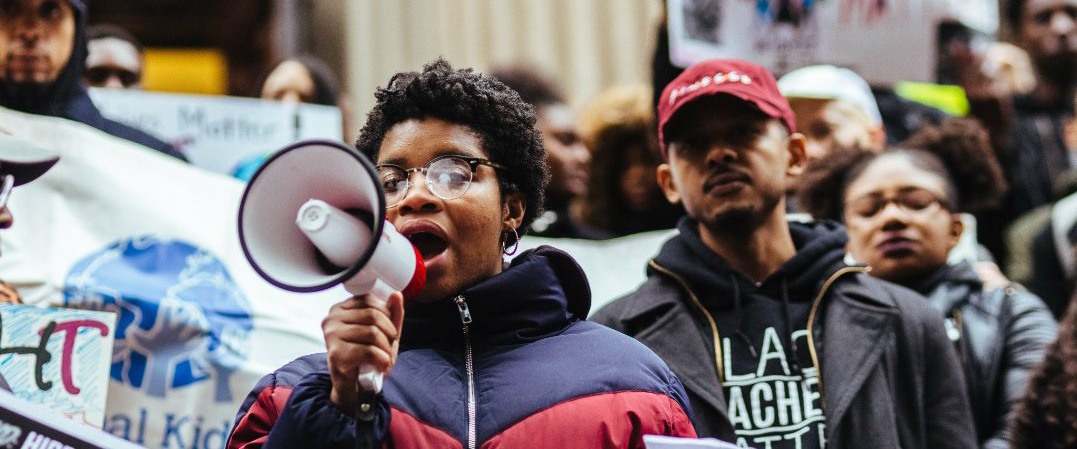Student Voice: We Have an Opportunity to Re-imagine Our Future
This student activist shares why now is the time to rethink education so that every student succeeds.

Hi! My name is Alliyah Logan and I am a Jamaican-American youth advocate from the Bronx. As an activist, I understand the importance of being a leader in my community. More often than not, I find that young people have to step up and lead this country with human decency and advocate for a more equitable world. Now, that observation seems more relevant than ever. The COVID-19 pandemic exposes holes in the education, health, housing, and justice systems and widens preexisting inequalities.
The Bronx is the epicenter for the global COVID-19 pandemic and I live in that. Every day, I see how this pandemic disproportionately impacts my community, exacerbating inequalities that I already knew existed. Inequalities I observed on my daily commute to high school. Each morning, I left my working-class community in the Bronx—made up of essential workers and people who rely on government assistance—to attend school in Lower-Manhattan. By moving between neighborhoods and socioeconomic barriers, I had to acknowledge the disparities that I saw. Disparities in resource access, wealth, and well-being.
Given the economic status of my community, I have always felt disconnected from the rest of New York City. This disconnection is embedded in my consciousness and determines how I interact with the world. This hasn’t been true for all Americans. It took the COVID-19 outbreak to make them recognize these structural inequalities.
Growing up, I learned that schools in my neighborhood were heavily policed. They have metal detectors, high suspension rates, and low graduation rates. Students don’t have access to leadership opportunities or tutor programs like their counterparts in wealthier neighborhoods. When the New York Department of Education (DOE) announced that public schools would close due to COVID-19, I knew it would have a large impact on low-income students, disabled students, and students a part of the Individualized Education Program (IEP). New York City public school learners heavily depend on their school for nutritious meals, internet access, and a safe learning environment. Online learning has presented many challenges for students who already struggled in the classroom.
However, the inequity spurred by school closures hasn’t brought a larger reckoning about failures in the education system. Proposed budget cuts could drastically widen the achievement gap that already places low-income students worse off than their wealthier counterparts. When we can return to school, students will need more support academically and emotionally.
At the same time, I have seen communities throughout New York City become more connected than ever. Now, people are more aware of their surroundings. They’re kinder to their neighbors and are more giving to people in need. In a crisis where national leadership seems elusive, everyday Americans are beginning to advocate for each other.
Black, Brown, and Indigenous communities are disproportionately impacted by the coronavirus. The problem isn’t that these communities are more susceptible to the virus, rather historical discrimination and consequential underlying health conditions have led to a disproportionate impact. For example, low-income communities experience worse health outcomes because of the lasting effects of institutionalized racism, redlining, and environmental racism. This must change! We have to actively support people and communities by uplifting their voices through legislative action.
In a crisis—especially, one that radically alters how we live our daily lives—it is important to begin to think about what parts of society we want to keep and what parts of society need to be radically reimagined. In a post-COVID-19 world, the world should have a renewed emphasis on collaboration, empathy, and support—a renewed focus that will ensure that every single person has a certain standard of living no matter their race or economic status. When quarantine ends, we will have the chance to start investing time and effort into our communities—a chance to uplift the voices of the most marginalized. We have to re-invest in people power.
WHO’S GOT THE POWER?
WE GOT THE POWER!
WHAT KIND OF POWER?
PEOPLE POWER!
Are you a student who wants to share how this pandemic is affecting you and your community? Do you have ideas about how to make high school more equitable in the future? Send an email to [email protected].









